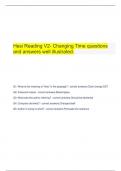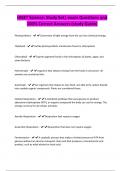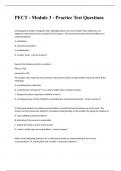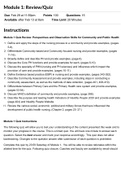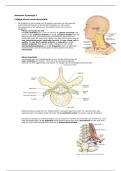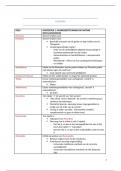Support or
Evaluation Point Limitation?
Explain why. Challenge:
Strength Research supports the predictions made by
Sybil Eysenck and Hans Eysenck (1977) compared 2070 male prisoners’ scores on the EPQ Eysenck’s theory, giving it greater external
with 2422 male controls; groups were subdivided into age groups, ranging from 16 – 69 years. validity
On measures of psychoticism, extraversion and neuroticism – across all age groups – prisoners
recorders higher scores than the control group which supports the predictions of the theory.
Limitation Moffitt argues that personality traits alone were • Explain why
The idea that all offending behaviour can be explained by a single personality type has been a poor predictor of how long offending behavior Eysenck’s
theory of t
heavily criticised. For instance, Moffitt (1993) proposed several distinct types of adult male would go on (would someone be a ‘career
criminal
offender based on the timing of the first offence, and how long offending persists. offender’) She considered persistence in personality
offending behavior to be the result of a reductionist
Further, Eysenck's criminal type is out-of-step with modern personality theories e.g. Digman’s reciprocal process between personality traits and
(1990) Five Factor Model of Personality suggests alongside E and N, there are additional environmental reactions to traits.
dimensions of openness, agreeableness and consciousness. This presents a more complex picture
(interactionism) Eysenck’s theory is too simplistic
Bartol and Holanchock (1979) looked into cultural differences. They studied Hispanic and Limitation Cultural factors are not taken into account. The • Suggest ho
African-American offenders in a maximum security prison in New York and divided these into results contradicts what Eysenck’s theory would such resear
could be mo
six groups based on their criminal history and the nature of their offence. It was revealed predict (more Extravert)
culturally
that all six groups were found to be less extravert than a non-criminal control group. Bartol Criminal personality may be a culturally relative relative.
et al. suggested that this was because their sample was a very different cultural group that concept
investigated by Eysenck, which questions the generalisability of the criminal personality.
Eysenck’s theory is built on the premise that it is possible measure personality though the use Limitation People may be many different moods and • Evaluate th
of a psychological test. Critics have suggested that personality type may not be reducible to a personalities all at once and so the EPQ is not use of
questionnair
‘score’ in this way; indeed, many argue there is no such thing as personality – in the sense of a tapping into a person’s essence or revealing stable
/interviews
stable entity, the like of which Eysenck was talking about. On a daily basis, we play many criminal traits. This may undermine any claims measure
different parts and our personality may change depending who were are with and the situation Eysenck made about being able to identify personality.
we are involved in (Mischel, 1988). There may be no fixed and unchangeable ‘true self’ 'natural' criminals using the EPQ as personality
directing out behaviour, criminal or otherwise. may not be static.
Eysenck’s theory recognises that personality may have a genetic basis and thus fits well Limitation Because of its biological basis, Eysenck’s theory • Does
does suffer from some of the same limitations as Eysenck's
with other biological explanations. There is also some overlap with research into antisocial
theory over
personality disorder (APD) and the suggestion that offenders are cold, uncaring and genetic and neural explanations
with any ot
incapable of empathy (though unlike Raine who explained APD through differences in explanation
brain structure and function, Eysenck attributes this to the activity of the nervous of offendin
system).


